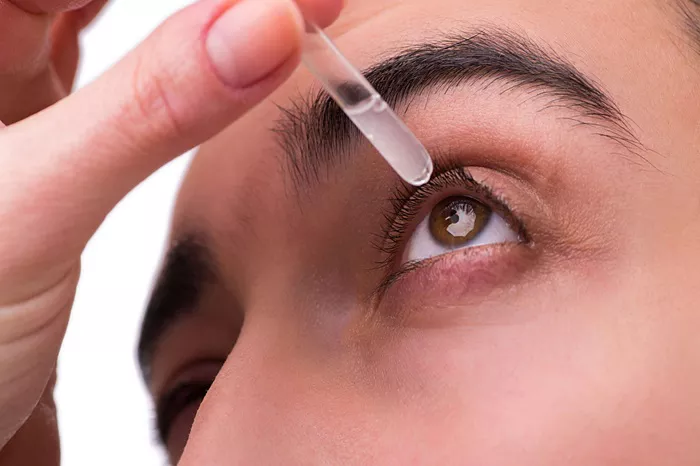Itchy eyes are a common complaint that can cause significant discomfort and interfere with daily activities. Whether triggered by allergies, environmental factors, or underlying health issues, the sensation of itchy eyes can be both irritating and distracting. This article provides a detailed overview of the causes of itchy eyes, immediate relief options, preventive measures, and when it is necessary to consult a healthcare professional.
Immediate Relief for Itchy Eyes
Finding quick relief is crucial when it comes to itchy eyes. Here are several effective methods to alleviate discomfort:
Cold Compress
Applying a cold compress can provide instant relief from itchiness. The cold helps reduce inflammation and numb the area, which can decrease the sensation of itchiness. How to apply a cold compress:
1. Soak a clean cloth in cold water or wrap a few ice cubes in a towel.
2. Wring out the excess water and place the cloth over your closed eyelids.
3. Keep it on for a few minutes, then remove. Repeat as necessary.
This method is particularly effective for itchy eyes caused by allergies or fatigue.
Artificial Tears/Lubricating Eye Drops
For those suffering from dry eyes, artificial tears or lubricating eye drops can provide relief by moisturizing the eyes and flushing out allergens and irritants. These over-the-counter solutions can be used several times a day to relieve discomfort. When selecting eye drops, opt for preservative-free varieties to avoid potential irritation.
Rinse with Saline Solution
A saline solution can help flush out irritants and moisturize the eyes. Steps to use a saline solution:
1. Purchase a pre-made saline solution or make your own by dissolving a teaspoon of salt in a quart of boiled, then cooled water.
2. Use a clean dropper to apply the saline to the eyes, or pour the solution into a sterile eye cup.
3. Blink several times to distribute the saline across the eye’s surface.
This method is safe and effective, especially for irritants like dust or pollen.
Over-the-counter Antihistamines
For itchiness due to allergies, over-the-counter antihistamine medications can be highly effective. These are available as oral tablets or eye drops. Antihistamines work by blocking the action of histamine, a compound released by the immune system during allergic reactions that causes inflammation and itching.
Avoid Rubbing
Though it might be a natural response, rubbing itchy eyes can actually exacerbate irritation and lead to more discomfort. Rubbing can also spread allergens and bacteria, increasing the risk of infection or further allergic reaction.
Common Causes of Itchy Eyes
Understanding the underlying causes of itchy eyes can aid in selecting the appropriate treatment and prevention strategies.
Allergies
Allergic reactions are a leading cause of itchy eyes. Common allergens include pollen, pet dander, and dust mites. During an allergic reaction, the body releases histamines, which cause the symptoms of itching, redness, and swelling.
Dry Eye Disease
Dry eye syndrome occurs when the eyes do not produce enough tears or when the tears evaporate too quickly. This can lead to irritation, redness, a gritty feeling, and itchiness.
Eye Infections
Conjunctivitis, also known as pink eye, is an infection or inflammation of the membrane lining the eyelid. It can be caused by viruses, bacteria, or allergies and often results in itching, redness, and discharge.
Irritants
Environmental factors such as smoke, dust, chlorine, and cosmetics can also trigger itchy eyes. These irritants can cause the eyes to become red and inflamed, leading to discomfort.
Prevention Tips
Allergy Management
If allergies are the cause of itchy eyes, managing your exposure to allergens is key. Use air purifiers to reduce indoor allergens, stay indoors when pollen counts are high, and consider allergy shots or medications as prescribed by a doctor.
Eye Hygiene
Maintaining good eye hygiene can prevent the development of itchy eyes. Wash hands frequently, especially before applying contacts or touching your face and eyes.
Contact Lens Care
For contact lens wearers, proper lens care is crucial to avoiding eye irritation. Always wash your hands before handling lenses, use the appropriate lens cleaning solutions, and replace your lenses as recommended.
When to See a Doctor
While many cases of itchy eyes can be managed at home, it is important to seek medical attention if:
1. Itchy eyes are severe or persistent.
2. Symptoms are accompanied by pain, redness, discharge, or changes in vision.
3. Home remedies do not alleviate the discomfort.
4. There is a suspected eye infection or injury.
Conclusion
Managing itchy eyes effectively requires understanding the underlying causes, applying immediate relief measures, and implementing preventive strategies. By following these guidelines, individuals can reduce discomfort and prevent future occurrences. Always consult with healthcare professionals for persistent or severe symptoms to ensure appropriate care and treatment.
[inline_related_posts title=”You Might Be Interested In” title_align=”left” style=”list” number=”6″ align=”none” ids=”7826,7777,7773″ by=”categories” orderby=”rand” order=”DESC” hide_thumb=”no” thumb_right=”no” views=”no” date=”yes” grid_columns=”2″ post_type=”” tax=””]

































